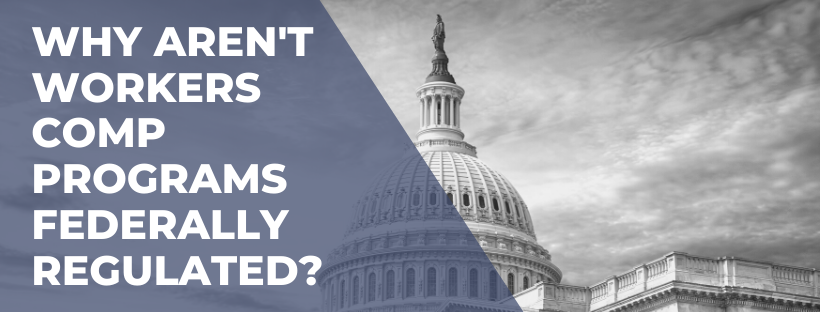A lot of people come into our office wondering why workers compensation programs aren’t regulated at a federal level. We’ve often wondered the same thing. To get a better understanding of workers compensation programs, it’s good to know why they exist in the first place.
Risky Business – The Origin of Workers Compensation Programs
The U.S. work compensation program was developed after both employers and employees began to acknowledge the need for a system that would protect them financially and legally against the risks associated with their sector of activity.
But its implementation raised a number of essential questions that needed to be addressed by legislators:
- Should public or private companies offer the new form of insurance?
- Should employers be allowed to self-insure or required to buy conventional insurance policies?
Although they mostly focused on the application aspect of workers’ compensation programs, finding the right answer to these questions was critical to guarantee the effectiveness and efficiency of the new social insurance system in the long run.
Why workers compensation laws are implemented by individual states
There are two main reasons why states are in charge of implementing workers compensation laws and maintaining workers compensation programs.
- The timing of their implementation
- The limited availability of social insurance systems in the U.S.
It wasn’t until the beginning of the 1900s that the federal government officially recognized that there needed to be a social program that protects employees. Given the fact that the introduction of this program was going to have profound economic and legal repercussions in the country, no one at that time asked whether states or the federal government should regulate the social insurance system.
The 1970s is the only time when that question was raised and specific recommendations made concerning an eventual federalization of workers’ compensation laws. In 1972, the National Commission on State Workmen’s Compensation Laws requested that states apply the 19 essential proposals that it had made in its report within a given time frame if they wanted to avoid federal monitoring. Following the release of the commission’s report, a wave of changes took place in states as they were trying to apply the recommendations suggested by the commission.
The commission’s request for changes in state workers’ comp laws was only partly implemented as no state has ever adopted the 19 essential recommendations. Nevertheless, the commission deemed that non-compliance to these was insufficient to trigger federal monitoring.
Have A Workers Comp Case? We’re here to help
If you’re struggling to get workers compensation benefits from the state of South Carolina, don’t hesitate to give us a call. Our experienced workers’ compensation attorneys are here to help answer any questions you may have about your individual case. Let us help you get the compensation you deserve.





